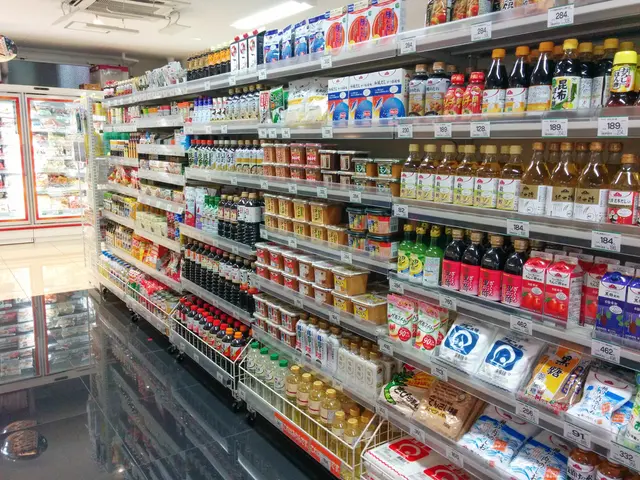Whether the European sanctions imposed on China will be sufficient to appease President Trump
The European Union (EU) is set to propose sanctions against more Chinese companies linked to Russia's war effort this week, as part of its 19th sanctions package. The package, expected on Friday, will target cryptocurrencies, banks, and energy sectors.
The EU has been actively working for several years to phase out Russian fossil fuels and has already significantly reduced its purchases of Russian black gold. This move is part of a broader strategy to weaken Moscow's war efforts.
The European Commission is working closely with the G7 and the United States on the implementation of sanctions. However, the potential addition of Chinese companies to the list of targets has raised questions about the EU's relationship with Beijing.
China still represents 21% of the EU's imports, with Germany being particularly dependent on the Middle Kingdom's economy. EU diplomats and officials believe that imposing tariffs on China is unthinkable, both politically and economically. Instead, Brussels seeks to rely more on targeted controls of Chinese company exports, particularly those selling military technologies to Russia.
The new sanctions are not without controversy. Agathe Demarais of the European Council on Foreign Relations notes that once sanctions are imposed on these companies, they often reopen under another name, making it a never-ending battle.
Meanwhile, Mujtaba Rahman, head of Europe at the Eurasia Group, suggests that a lack of Trump's willingness to stand up to Putin is the missing link for coherence in the EU's strategy towards Russia. Many European officials question if the Trump administration's actions are part of a coherent strategy regarding Russia.
President Trump's tougher stance on Russia, identifying Putin as the aggressor, is met with skepticism by both Europeans and American Republicans regarding the sincerity of his intentions. Some believe that Trump's actions are more about exploiting Europe's vulnerabilities for his own geopolitical gain.
Several European officials believe that Donald Trump has leverage over Hungary due to its ideological similarity with the MAGA movement. Brussels is walking a tightrope between keeping Washington on its side against Putin while avoiding a break with Beijing.
The EU's 19th sanctions package includes measures against companies in third countries, including China, that directly or indirectly support Russia's military-industrial complex. It imposes transaction bans on certain banks, restricts exports of goods and technologies used in combat, and targets 45 companies in Russia and third countries linked to Russia's war efforts. However, specific Chinese companies are not explicitly named in the publicly available information.
The EU prefers targeted sanctions against companies linked to the war rather than generalized tariffs. This approach allows for a more focused impact on those contributing to the conflict, while minimising economic disruption for the EU and its member states.
As the EU moves forward with its sanctions, it remains to be seen how the relationship between the EU, China, and Russia will evolve. The EU will need to navigate this complex geopolitical landscape carefully, balancing its commitment to peace and security with its economic interests.
Read also:
- Impact of Trump's Enforced Russia Sanctions Could Compel Putin's Decision-Making
- Steady U.S. inflation amidst prices elevated by Trump's tariffs
- Tariffs increase pause extended by US and China for 90 days
- U.S. Senator issues caution to Hungary and Slovakia regarding their acquisitions of Russian energy supplies







